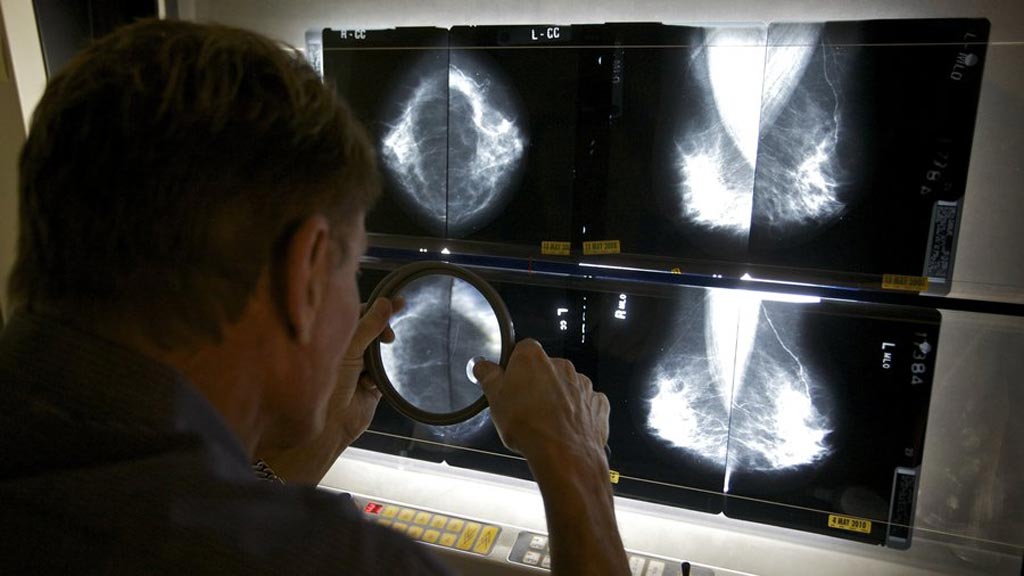Study Reveals Breast Cancer Screening Associated with Over-Diagnosis
By MedImaging International staff writers
Posted on 24 Jan 2017
The results of a cohort study indicate that breast cancer screening in Denmark was not associated with a reduction in the incidence of advanced cancer.Posted on 24 Jan 2017
The researchers found that possibly one in every three invasive tumors and cases of DCIS (ductal carcinoma in situ) diagnosed in women who had been screened, represents over-diagnosis.

Image: While mammography screening is good at finding tumors, it cannot easily distinguish which ones are harmless from those that are dangerous (Photo courtesy of Damian Dovarganes/AP).
The study was published online in the January 10, 2017, issue of the journal Annals of Internal Medicine. The researchers from the Nordic Cochrane Centre, the University of Oslo, and the Norwegian Institute of Public Health, found a significant increase in the incidence of non-advanced tumors, and DCIS, but no reduction in the incidence of advanced tumors.
Breast cancer screening is intended to detect early-stage cancer, and prevent advanced breast cancer however screening may also detect small benign tumors that do not pose any danger to the patient during their lifetime. In addition, mammography screening exposes patients to radiation, and over diagnosis may result in potentially unnecessary surgery and chemotherapy.
The researchers used data from two Danish cancer registries of biennial mammography breast screening programs for 50 to 69 year old women, between the years 1991 and 2010. The researchers looked at trends in over-diagnosis, and the number of advanced and non-advanced breast cancer tumors found in both screened and unscreened women.
Chief Medical Officer of the American Cancer Society, Otis Brawley, MD, MACP, said, "Considering all small breast cancer lesions to be deadly aggressive cancer is the "pathology equivalent of racial profiling." This does not mean that screening should be abandoned, but we should try to recognize its limitations, use it in the most effective way possible, and try to improve it." Dr. Brawley also suggested that more focus should be put on preventing breast cancer in the first place, by diet, controlling body weight, and exercising.














